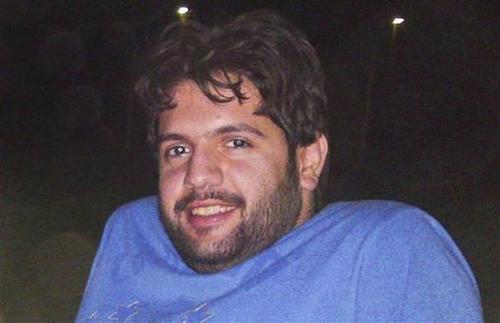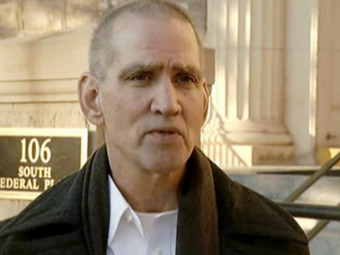Via Scoop.it – Rights & Liberties
“I was arrested at SMC on 12th April 2011, by masked security officers of the Ministry of Interior, and was beaten up brutally and punched in the head. I was blindfolded with a cloth tightly wrapped on my eyes, thrown into a police car and taken to a Qalaa’ clinic for medical screening, where it was revealed that I had hypertension and that my BP (Blood Pressure) was on the high danger level of 230/120mm. All the attempts of the doctors to reduce my BP to normal (120/80mm) failed and then it was decided to transfer me to the Bahrain Defense Force Hospital (BDF) in Western Riffaa’ area, where they could only manage to reduce my BP to190/110 – 180/100mm. They then transferred me to the Drug Section of the Department of Criminal Investigation Division at the Ministry of Interior which is located in Al-A’dlyia area, where a room had been allocated for the purpose of the interrogation of the prisoners by the military prosecution on behalf of the military. Here we were subjected to physical torture using all different torturing methods and means and tools (including electric shocks). I was beaten up on my face, head, hands, legs, back and coccyx, because of which I lost the sensation in the fingers of my left hand. They threatened me with sexual assault, hurled insults at me and on my family and relatives, cursed and swore at me and spat on my face. They even insulted my religious and spiritual beliefs.”
Via doctorsinchains.org
Category Archives: Uncategorized
What Does Twitter’s Country-by-Country Takedown System Mean for Freedom of Expression? | Electronic Frontier Foundation
Via Scoop.it – Rights & Liberties
Twitter has not yet blocked a tweet using this new system, but when it does, that tweet will not simply disappear—there will be a message informing you that content has been blocked due to your geographical location.
Via eff.org
How Google’s New Privacy Policy Could Affect You: Scientific American
Via Scoop.it – Rights & Liberties
Google will merge data from the products you use and then analyze it to make new assumptions…
Via scientificamerican.com
‘I saw death’: Canadian in Bahrain says he’s hiding to escape his torturers
Via Scoop.it – Rights & Liberties
Terrified that he will be beaten to death if he is dragged back to prison, a Kuwait-born Canadian citizen says he has gone into hiding in Bahrain after losing his appeal of his conviction for breaking the country’s illegal assembly laws.
Via canada.com
Apple’s iPad and the Human Costs for Workers in China
Via Scoop.it – Rights & Liberties
A staggering manufacturing system in China has made it possible for Apple and other companies to make devices almost as quickly as they can be dreamed up, but for workers, it can be dangerous.
Via nytimes.com
New Mexico driver arrested and forgotten in jail for two years — RT
Via Scoop.it – Rights & Liberties
A 58-year-old New Mexico man has been awarded $22 million in one of the largest ever federal civil rights settlements of its kind. For 22 months, Stephen Slevin was held in solitary confinement and never brought to trial.
Via rt.com
Twitter Blog: Tweets still must flow (with caveats)
Via Scoop.it – Rights & Liberties
Starting today, we give ourselves the ability to reactively withhold content from users in a specific country — while keeping it available in the rest of the world. We have also built in a way to communicate transparently to users when content is withheld, and why.
Via blog.twitter.com
Tweets still must flow (with caveats)
Via Scoop.it – Rights & Liberties
“Starting today, we give ourselves the ability to reactively withhold content from users in a specific country — while keeping it available in the rest of the world. We have also built in a way to communicate transparently to users when content is withheld, and why.”
Via blog.twitter.com
How the Occupation Became Legal by Eyal Press | NYRblog | The New York Review of Books
Via Scoop.it – Rights & Liberties
Surprisingly little is known about the legal apparatus that has enabled and structured the occupation. Filmed in nine days but based on years of archival research, The Law in These Parts aims to expose it. Even before the 1967 Six-Day War, the film reveals, officers in the army’s legal corps drew up guidelines for a separate system of laws that could be applied to territory under IDF control, rules they were convinced could strike a balance between order and justice. But by the time the first Palestinian Intifada erupted in 1987, detention without trial and convictions based on secret evidence had become standard operating procedure in the military courts entrusted with this task.
Via nybooks.com
Why We Should Be Glad the Haditha Massacre Marine Got No Jail Time
Via Scoop.it – Rights & Liberties
If we were to lower the bar to make it easier to convict those we “know” are guilty, we would also make it easier to unjustly imprison the innocent.
Via theatlantic.com








